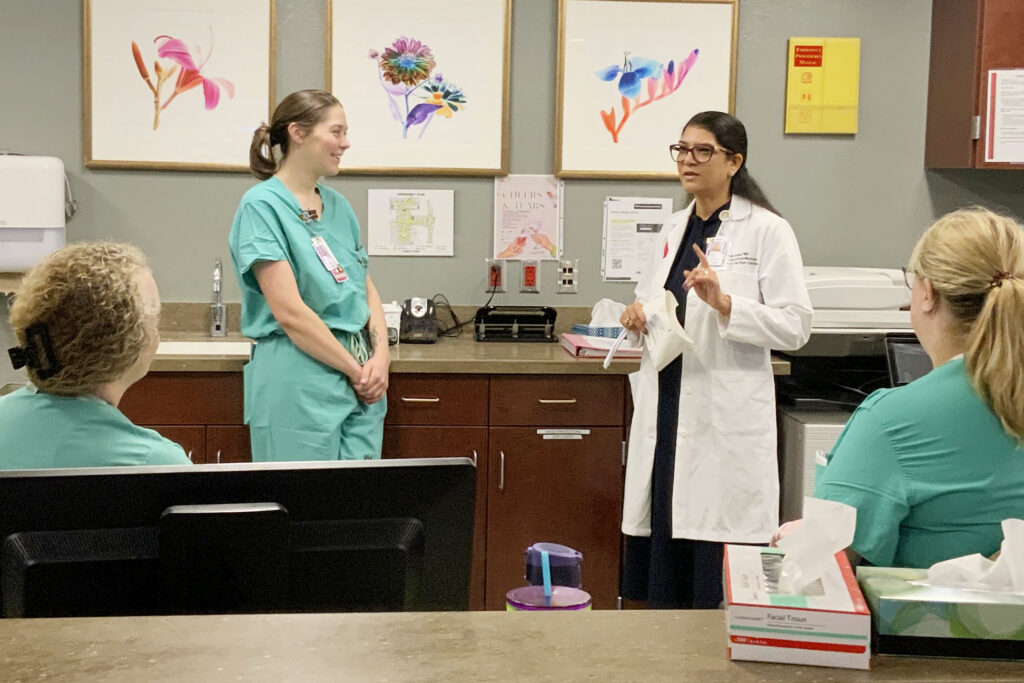It’s a condition that can cause serious complications and even death for a pregnant woman if left untreated. Preeclampsia can develop during pregnancy, often causing high blood pressure and affecting organs like the kidneys and liver.
It’s especially dangerous, because women often do not experience any symptoms.
Nebraska Medicine and UNMC now are the first in the state of Nebraska to implement a strategy to offer a new blood test that more accurately predicts whether a woman will develop severe preeclampsia during pregnancy.
The FDA-approved test helps physicians, together with other health data, assign a risk level to women hospitalized with high blood pressure in pregnancy, for development of severe preeclampsia over a two-week period. The test was developed thanks to the groundbreaking research of Sarosh Rana, MD, chair of the UNMC Department of Obstetrics and Gynecology and the Chris J. and Marie A. Olson Endowed Professor in the department.
“For years, we’ve watched women suffer because we couldn’t tell who is truly at risk for preeclampsia,” Dr. Rana said. “Traditional tests like blood pressure and protein in urine are poor predictors of severe preeclampsia or its related complications. This leads to women being hospitalized for weeks unnecessarily, while others at real risk go home and suffer from complications.”
The test works by detecting two proteins in the blood, sFlt-1 and PIGF, that more accurately predict poor outcomes from preeclampsia.

“These biomarkers can predict severe preeclampsia with up to 94% accuracy within two weeks,” Dr. Rana said. “That’s a game-changer. Now, we can identify which moms need intensive monitoring and which can safely be managed expectantly and their pregnancy continued. This research represents hope for every pregnant woman and their family.”
In collaboration with maternal fetal medicine specialists Neil Hamill, MD, and Rebecca Rimsza, MD, Nebraska Medical Center began offering these tests in late October to hospitalized patients between 23 and 35 weeks of pregnancy, who displayed symptoms of preeclampsia or those at high risk.
Dr. Rana said work is underway to expand the indication of this test to be used in triage or an outpatient setting to identify high-risk patients and reduce unnecessary hospitalizations.
“Because it’s not a screening test, it should only be used when there is suspicion of preeclampsia,” Dr. Rana said.
“This is just the beginning,” she said. “As we gather experience with this testing, we’ll work to expand access across our network and potentially to partner hospitals throughout the state. Our goal is to ensure that every Nebraska woman who needs this test can get it.”
